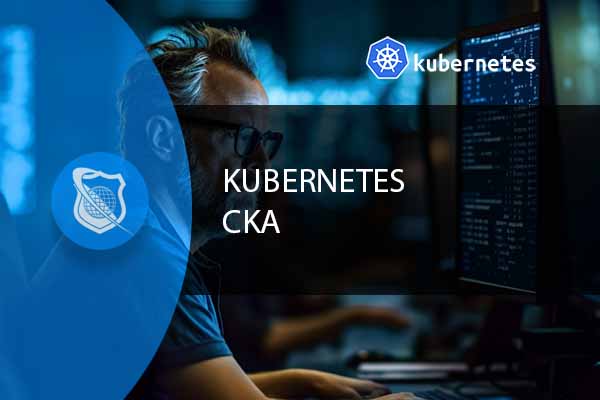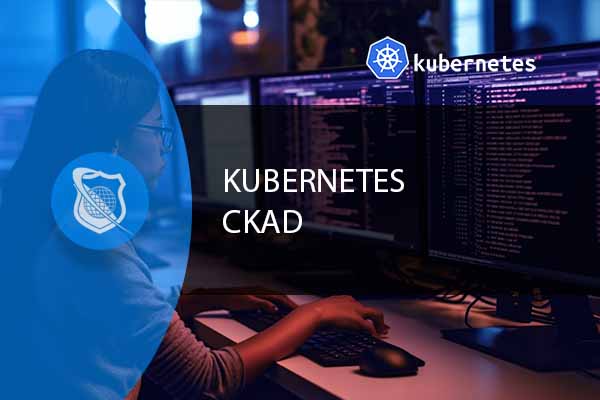In the dynamic and fast-paced world of Kubernetes, staying relevant means continuously updating your skills and knowledge. Over the past two decades, I’ve seen the Kubernetes ecosystem grow from a fledgling project to a robust platform that powers some of the world’s most complex applications. It’s no longer a question of whether organizations will adopt Kubernetes; it’s a matter of when and how. As Kubernetes has matured, so has the need for specialized skills to manage and operate it effectively. This is where certifications like CKAD (Certified Kubernetes Application Developer) and CKA (Certified Kubernetes Administrator) come into play.
The question of “CKAD vs CKA” is not a new one, but it’s a question that has gained more significance as Kubernetes has become more complex and feature-rich. I’ve been asked this question in various forms over the years—be it from budding professionals looking to break into the Kubernetes space, or seasoned veterans aiming to validate their skills formally. The query is often accompanied by a sense of urgency, as professionals grapple with the rapid changes in the Kubernetes ecosystem and the increasing demands of their roles.
Both CKAD and CKA certifications offer a structured learning path and a rigorous examination process, ensuring that certified professionals meet industry standards. However, they are not interchangeable. Each certification is designed with a specific set of job responsibilities in mind and aims to validate a distinct skill set. For instance, while CKAD focuses on the nuances of application development within a Kubernetes environment, CKA is geared towards those who are or aim to be responsible for the overall health and functionality of a Kubernetes cluster.
The importance of choosing the right certification cannot be overstated. It’s not just about passing an exam; it’s about aligning your certification with your career goals, current job responsibilities, and the gaps in your skill set. Making the right choice can set you on a path to career advancement, higher earning potential, and greater job satisfaction. Conversely, choosing the wrong certification can lead to frustration, wasted time, and resources.
In this comprehensive guide, we will dissect each certification—examining their objectives, comparing their exam formats, and evaluating their career implications. We’ll also provide a side-by-side analysis of CKAD vs CKA, breaking down their key differences and unique advantages. Our goal is to equip you with the information you need to make an informed decision, one that will benefit your career in the long run.
Certified Kubernetes Administrator
Ready to ace the Certified Kubernetes Administrator (CKA) exam? Our comprehensive course is your one-stop solution! We guide you through the exam process, keep you updated on any changes, and arm you with test-taking strategies. Don’t miss out—enroll now and elevate your career!
What is CKAD?
The Certified Kubernetes Application Developer (CKAD) program is more than just a certification; it’s a validation of your ability to perform the responsibilities of a Kubernetes application developer effectively. Over the years, I’ve seen how this certification has evolved to meet the growing complexities of Kubernetes, and it’s safe to say that a CKAD-certified professional is well-equipped to tackle real-world challenges in a Kubernetes environment.
Skill Depth and Breadth
As a CKAD, you’re not just learning how to deploy an application; you’re learning how to design, build, configure, and expose cloud-native applications in a Kubernetes cluster. This involves a deep understanding of Kubernetes resources, APIs, and best practices. You’ll be proficient in using native Kubernetes APIs to interact with the cluster, ensuring that your applications are not just functional but also fault-tolerant and scalable.
CKAD Exam Topics Explained
- Core Concepts: This covers the fundamental building blocks of Kubernetes, such as Pods, Nodes, and Namespaces. Understanding these core concepts is crucial for any application development on Kubernetes.
- Configuration: This involves ConfigMaps and Secrets, which are essential for managing configuration data and sensitive information separately from container images.
- Multi-container Pods: Kubernetes allows you to run multiple containers within the same Pod. This section tests your ability to manage such configurations effectively.
- Observability: This is about monitoring and logging. You’ll need to know how to ensure that your application is running as expected and how to troubleshoot if it isn’t.
- Pod Design: This involves understanding how to design your Pods for effective scaling, load balancing, and updates. You’ll learn about Labels, Selectors, and Deployments.
- Services and Networking: This section tests your understanding of how to expose your application and allow communication between Pods. You’ll delve into Services, Ingress controllers, and Network Policies.
CKAD Training
Ready to conquer the CKAD exam and elevate your career? Our top-notch IT course is your golden ticket! Dive into a world of Kubernetes expertise with our in-depth lectures and materials. Designed by industry pros, this course ensures you’ll not only master Kubernetes but also ace that CKAD exam. Don’t miss your chance to become a Kubernetes superstar!
What is CKA?
The Certified Kubernetes Administrator (CKA) program is tailored for those who are on the path to becoming Kubernetes administrators. Unlike CKAD, which is application-centric, CKA is about understanding the Kubernetes architecture as a whole and being able to manage it.
The Role of a CKA
As a CKA, you’ll be responsible for the entire Kubernetes cluster. This involves not just deploying applications but also ensuring the cluster’s health, performance, and security. You’ll be the go-to person for installing Kubernetes, configuring networking, managing storage, and troubleshooting any issues that arise.
CKA Exam Topics
- Cluster Architecture: Understanding the architecture is fundamental. You’ll need to know how the control plane and worker nodes interact.
- Installation and Configuration: This involves setting up a Kubernetes cluster from scratch, including the control plane and worker nodes.
- Workloads and Scheduling: This covers how to manage the workloads in your cluster, including Deployments, StatefulSets, and DaemonSets.
- Services and Networking: Similar to CKAD, but more in-depth. You’ll need to understand networking on a cluster level.
- Storage: This involves managing persistent storage for stateful applications.
- Troubleshooting: A crucial part of being an administrator is knowing how to diagnose and fix issues. This section tests those skills comprehensively.
Both CKAD and CKA are robust certifications that offer different avenues for specialization within the Kubernetes ecosystem. Whether you’re a developer looking to hone your application development skills or an aspiring administrator aiming to manage large clusters, these certifications have got you covered.
Certified Kubernetes Administrator
Ready to ace the Certified Kubernetes Administrator (CKA) exam? Our comprehensive course is your one-stop solution! We guide you through the exam process, keep you updated on any changes, and arm you with test-taking strategies. Don’t miss out—enroll now and elevate your career!
CKAD vs CKA: Key Differences Unveiled
When navigating the Kubernetes certification landscape, the decision between CKAD and CKA often becomes a pivotal point. Both certifications are highly respected in the industry, but they serve different functions and are tailored for different career paths. Let’s break down these differences in more detail.
Skillset Focus
- CKAD: Application Development: As a CKAD, your primary focus will be on the development aspects of Kubernetes. You’ll be dealing with the application lifecycle, from development to deployment, and even scaling. You’ll need to understand how to containerize applications, manage configurations, and handle multi-container Pods. The CKAD is all about ensuring that you can develop applications that are native to the Kubernetes ecosystem.
- CKA: Cluster Management: The CKA, on the other hand, is more about the ‘big picture.’ As a Kubernetes Administrator, you’ll be responsible for the entire cluster. This involves a deep understanding of the Kubernetes architecture, networking, storage solutions, and even security protocols. You’ll be the one setting up the cluster, ensuring its high availability, and troubleshooting issues that affect the cluster’s performance.
Target Audience
- CKAD: Developers: If you’re a developer looking to specialize in Kubernetes-based application development, CKAD is the certification for you. It’s designed to validate your skills in designing, building, and deploying applications on Kubernetes.
- CKA: System Administrators: The CKA is aimed at those who are responsible for the setup, management, and maintenance of Kubernetes clusters. This could include system administrators, DevOps engineers, and IT professionals who are looking to transition into a Kubernetes-focused role.
Complexity
- CKAD: Generally considered easier: The CKAD is often seen as the more accessible of the two exams, but don’t let that fool you. It’s easier in the sense that it focuses on a specific aspect of Kubernetes—application development. However, the exam is still challenging and requires a deep understanding of how to develop and deploy applications effectively in a Kubernetes environment.
- CKA: More comprehensive and challenging: The CKA exam is broader in scope, covering a wide range of topics from cluster setup to troubleshooting. The exam is longer and has a higher passing score requirement, reflecting its comprehensive nature.
Exam Format and Content
Both CKAD and CKA exams are performance-based, which means you’ll be working in a real Kubernetes environment rather than answering multiple-choice questions. This hands-on approach ensures that you’re tested on practical skills that you’ll actually use in your job.
- CKAD Exam: The CKAD exam is 2 hours long and consists of 19 questions. The questions are scenario-based, requiring you to perform tasks in a live environment.
- CKA Exam: The CKA exam is more grueling, lasting 3 hours and consisting of 24 questions. The questions cover a broader range of topics, reflecting the wide array of responsibilities that a Kubernetes Administrator may have.
Exam Scoring
- CKAD: Pass mark is 66%: Given that the CKAD exam is more specialized, the passing mark is set at 66%. However, each question is weighted differently, so your focus should be on answering each question to the best of your ability.
- CKA: Pass mark is 74%: The CKA has a higher passing score requirement, reflecting its complexity and the broad range of topics it covers. Like the CKAD, each question in the CKA exam is weighted differently.
Choosing between CKAD and CKA often boils down to your career goals, your current role, and where you see yourself in the future. Both certifications offer a rigorous and comprehensive learning path, but they lead to different specializations within the Kubernetes ecosystem.
CKAD Training
Ready to conquer the CKAD exam and elevate your career? Our top-notch IT course is your golden ticket! Dive into a world of Kubernetes expertise with our in-depth lectures and materials. Designed by industry pros, this course ensures you’ll not only master Kubernetes but also ace that CKAD exam. Don’t miss your chance to become a Kubernetes superstar!
Career Implications: CKAD vs CKA
The decision to pursue either the CKAD vs CKA certification is not just about the skills you’ll acquire; it’s also about the doors those skills will open for you in your career. Over the past two decades, I’ve observed firsthand how these certifications can serve as catalysts for career growth, albeit in different directions.
Industry Appeal
- CKAD: Application Development Focus: Companies that are heavily invested in developing cloud-native applications often prioritize hiring CKAD-certified professionals. These could be software companies, e-commerce giants, or any organization looking to leverage Kubernetes for application development. The CKAD certification signals to employers that you have the skills needed to develop, deploy, and manage applications on Kubernetes.
- CKA: Cluster Management and Troubleshooting: On the other hand, companies that are looking for professionals to manage their Kubernetes infrastructure are more inclined to hire CKA-certified individuals. These roles are often found in larger enterprises, cloud service providers, and organizations that use Kubernetes for mission-critical applications. As a CKA, you’ll be seen as someone capable of managing the entire Kubernetes ecosystem, from setup to troubleshooting.
Salary Expectations
- CKAD: Average Salary Ranges from $90,000 to $120,000: While the CKAD is often considered the ‘easier’ of the two exams, the salary expectations are still quite competitive. This reflects the high demand for skilled Kubernetes application developers in the job market.
- CKA: Average Salary Ranges from $100,000 to $130,000: The CKA certification often commands a slightly higher salary, reflecting the broader range of skills and responsibilities associated with Kubernetes administration. The role of a Kubernetes administrator is often seen as more complex and critical, hence the higher salary range.
Career Progression
- CKAD: A CKAD certification can serve as a stepping stone for roles like Kubernetes Application Developer, DevOps Engineer with a focus on CI/CD pipelines, or even a Cloud Architect specializing in Kubernetes.
- CKA: With a CKA certification, you could move into roles like Kubernetes Cluster Administrator, Site Reliability Engineer (SRE), or even a Cloud Infrastructure Manager overseeing multiple Kubernetes clusters.
Which One is Right for You?
Your choice between CKAD and CKA should be a strategic career decision.
- For Developers: If you’re a developer aiming to specialize in Kubernetes-based application development, the CKAD is your go-to certification. It aligns well with roles that focus on the application lifecycle within a Kubernetes environment.
- For Administrators and Operations: If you’re more inclined towards the operational aspects of Kubernetes, including cluster management and troubleshooting, the CKA would be a better fit. This certification prepares you for the challenges of managing a Kubernetes cluster at scale.
In summary, both CKAD and CKA offer distinct career paths and advantages. Your choice should align with your career goals, the skills you wish to acquire, and the type of roles you’re aiming for. Either way, earning a CKAD vs CKA certification is a significant career milestone that can open new doors and opportunities.
Certified Kubernetes Administrator
Ready to ace the Certified Kubernetes Administrator (CKA) exam? Our comprehensive course is your one-stop solution! We guide you through the exam process, keep you updated on any changes, and arm you with test-taking strategies. Don’t miss out—enroll now and elevate your career!
Conclusion: CKAD vs CKA—A Strategic Choice for Your Career
The journey through the Kubernetes landscape is filled with opportunities, challenges, and decisions that can shape your career for years to come. The debate between CKAD and CKA is not a question of superiority; rather, it’s about alignment—alignment with your career goals, your current or desired job role, and your personal interests within the Kubernetes ecosystem.
The Value of Certification
Both CKAD and CKA are not just certifications; they are endorsements of your skills by the Cloud Native Computing Foundation (CNCF), the organization behind Kubernetes. These certifications are globally recognized and highly respected, serving as a testament to your expertise and commitment to professional growth. In my two decades in the field, I’ve seen how these certifications can serve as differentiators in a competitive job market, often tipping the scales in favor of certified candidates during the hiring process.
Career Versatility
One of the most compelling aspects of both certifications is the versatility they offer. A CKAD certification can lead to roles in application development, DevOps, and even cloud architecture, while a CKA can pave the way for positions in system administration, site reliability engineering, and cloud infrastructure management. The point is, neither certification locks you into a single career path; instead, they open multiple doors, each leading to unique opportunities.
Long-Term Investment
It’s also worth noting that these certifications are not just about the here and now; they are a long-term investment in your career. As Kubernetes continues to evolve and become an even more integral part of the IT landscape, the value of being certified will likely increase. Your expertise in Kubernetes, validated by a CKAD vs CKA certification, will continue to be a highly sought-after skill for the foreseeable future.
The Importance of Preparation
Lastly, irrespective of which certification you choose, preparation is key. Both exams are rigorous and designed to test your practical skills in a real-world Kubernetes environment. Therefore, it’s crucial to not just study but also get hands-on experience. Utilize the plethora of resources available, from documentation and courses to practice exams and community forums. Your level of preparation will directly impact your performance in the exam and, by extension, the value you derive from the certification.
CKAD Training
Ready to conquer the CKAD exam and elevate your career? Our top-notch IT course is your golden ticket! Dive into a world of Kubernetes expertise with our in-depth lectures and materials. Designed by industry pros, this course ensures you’ll not only master Kubernetes but also ace that CKAD exam. Don’t miss your chance to become a Kubernetes superstar!
Final Thoughts
In conclusion, the CKAD vs CKA debate boils down to personal career goals and the specific skills you wish to acquire or enhance. Both certifications offer immense value, both in terms of skills and career opportunities. As someone who has witnessed the transformative impact of Kubernetes on the IT industry, I can vouch for the long-term value and relevance of both CKAD and CKA certifications. Choose wisely, prepare diligently, and you’ll find that either certification is a worthy addition to your professional arsenal, equipping you with the skills to thrive in the ever-evolving world of Kubernetes.
CKAD vs CKA : Comprehensive FAQ Section
What are the key differences between CKAD and CKA certifications?
The CKAD certification focuses on validating the skills required to design, build, configure, and expose cloud-native applications for Kubernetes. It tests a candidate’s ability to manage Kubernetes deployments using the command line and ensures they understand how to define application resources and use core primitives to build, monitor, and troubleshoot scalable applications and tools in Kubernetes. On the other hand, the CKA certification is designed to verify the skills needed to perform the responsibilities of Kubernetes administrators. It covers deep knowledge of managing Kubernetes clusters, including installation, configuration, and maintenance of clusters and Kubernetes components, as well as troubleshooting. The certification also assesses the ability to ensure system security and understand the core concepts of Kubernetes architecture.
Which certification should I pursue first, CKAD or CKA?
Choosing between CKAD and CKA depends on your current role and career goals. If you are a software developer or engineer primarily focused on designing and deploying applications on Kubernetes, the CKAD certification might be more relevant. It will enhance your ability to work with Kubernetes from an application development standpoint.
If you are an IT professional, DevOps engineer, or system administrator responsible for managing Kubernetes clusters, the CKA certification would be more appropriate. It will provide you with a comprehensive understanding of Kubernetes administration, including cluster setup, configuration, and maintenance.
How much time should I allocate for preparing for the CKAD vs CKA exams?
Preparation time can vary significantly based on your existing experience with Kubernetes and your familiarity with its components. For the CKAD, candidates might need 2-3 months of dedicated study and practice if they have a basic understanding of Kubernetes and containerization technologies. For the CKA, preparation might take a bit longer, around 3-4 months, due to the broader scope of topics and the depth of knowledge required in cluster management and troubleshooting. However, individuals with extensive experience in Kubernetes might find they need less time to prepare.
Can I hold both CKAD and CKA certifications? If so, what are the benefits?
Yes, you can hold both CKAD and CKA certifications, and doing so can significantly enhance your professional profile. Holding both certifications demonstrates a comprehensive understanding of Kubernetes from both an application development and an administrative perspective. This dual expertise can make you highly valuable in roles that require a deep understanding of deploying, managing, and optimizing Kubernetes environments. It can also open up more career opportunities and potentially lead to higher salary prospects.
Are there any prerequisites for taking the CKAD or CKA exams?
There are no formal prerequisites for taking either the CKAD or CKA exams. However, it is highly recommended that candidates have substantial hands-on experience with Kubernetes. For CKAD, familiarity with cloud-native application development and deployment processes is advantageous. For CKA, understanding the fundamentals of Linux system administration, containerization technologies, and networking concepts will be beneficial. Both exams require practical skills and the ability to apply knowledge in real-world scenarios, so practical experience is key to success.
You may also like:
CKA Exam Questions: A Comprehensive Guide for Success
CKA Certification : 10 Tips to Ace the Exam
CKA Exam Study Plan : A 30-Day Roadmap to Success


























